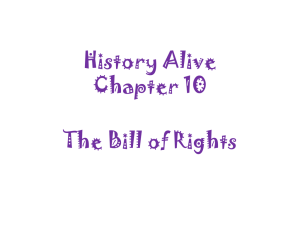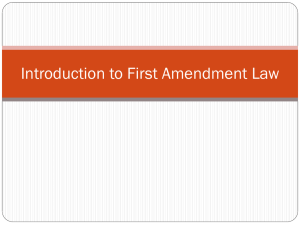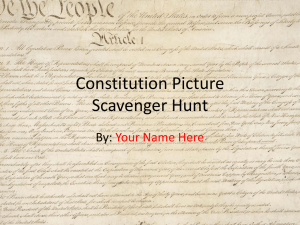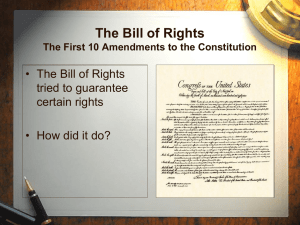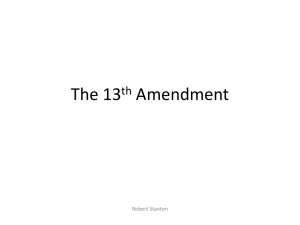advertisement
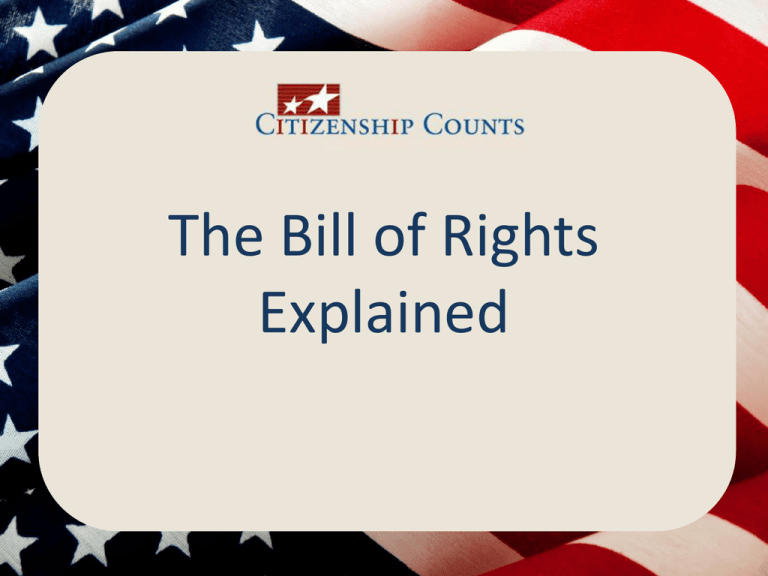
The Bill of Rights Explained Amendment I • Freedom of Speech • Freedom of Religion • Freedom of the Press • Freedom of Assembly • Freedom of Petition Amendment II • The right to own a firearm. Amendment III • People are not required to quarter (house) soldiers. Amendment IV • Protects people from unreasonable searches and seizures. • Most of the time a warrant is needed to conduct a search. Amendment V • Before a trial for a major crime occurs, a grand jury must decide if there is enough evidence to proceed. • You do not have to testify against yourself (“Take the fifth.”) • You can’t be tried for the same crime twice. • Citizens are guaranteed due process of law. • Property cannot be taken from citizens without payment. Amendment VI • Right to a speedy and public trial • Right to a trial by jury • Right to be informed of the charges against you. • Right to listen to and ask questions) witnesses against you. • Right to a lawyer. If one cannot afford one, one will be provided. Amendment VII • The right to trial by jury in certain cases that involves money and property Amendment VIII • Protects the accused from excessive bail being set. Bail is what the accused pays the court to guarantee that they will appear in court on a future court date. • Protects people from cruel and unusual punishment. Amendment IX • To write down every single right people deserve would be too difficult. • The ninth amendment implies that people have more rights than the ones that are listed in the Bill of Rights. Amendment X • Any power that is not specifically given to the Constitution, is given to the states. • The Constitution mentions nothing about marriage, traffic violations, or the public school system. This amendment keeps decisions about many issues local.

